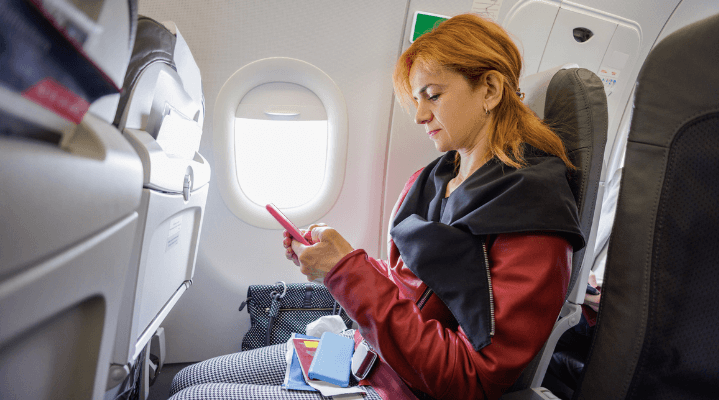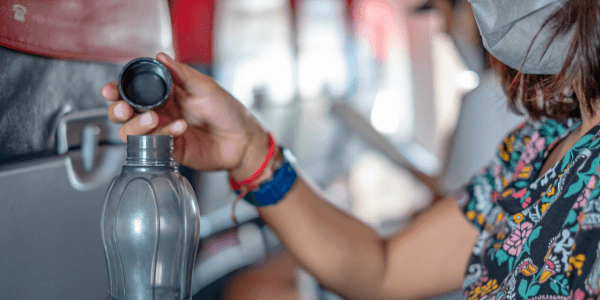
Millions of Britons are expected to escape the UK in the coming weeks and jet off for a holiday abroad.
The flight is all part of the adventure, but can take its toll on the body – from an increased risk of catching air-borne diseases to Deep Vein Thrombosis. To help passengers stay healthy at 30,000 feet, Dr Hagar El-Habti, a GP at King Edward VII’s Hospital highlights possible flight risks and how to mitigate them, including wearing a mask, yawning and swapping contacts for glasses.
Risk of air-borne diseases increases
It’s a common misconception that re-circulation of air via a plane’s conditioning system may increase the risk of catching air-borne diseases, such as COVID-19, the common cold or flu, as they have sophisticated filtering systems to help minimise this. It’s actually more likely you’ll catch something from being in close proximity to your fellow passengers. To protect yourself, it’s worth wearing a mask – even if not required by your airline – and using antibacterial hand gel, particularly before eating or after using the toilet.
Ears under pressure…
During take off and landing, the air pressure inside the cabin changes dramatically, and the pressure in your inner ear tries to quickly re-calibrate to match this. Sometimes this will be signalled by your ears popping. To help avoid this, try swallowing or yawning as you take off and land. This will open the eustachian tube in your inner ear – which controls pressure – and should makes the process less uncomfortable.
Bloating in mid air..
Similarly the change in air pressure can have a gastrointestinal effect, whereby you become more bloated or feel pressure in your stomach. Try and plan ahead before you fly and avoid having too big a meal before you take off, eating small meals whilst on board, and steer clear of pulses or legumes known to cause gas. Read more on improving your digestive health.

Dehydration risks
Aeroplane cabins have very low humidity levels meaning there isn’t much moisture in the air that you’re breathing. This can lead to your throat, eyes and nose feeling dry and itchy. To combat this make sure you take a refillable water bottle and fill it up after you go through security, if you usually wear contact lenses, swap for glasses, to prevent further discomfort to your eyes, and consider taking nasal drops onboard.
Stay mobile to reduce the chance of Deep Vein Thrombosis (DVT)
Lack of movement, and not having enough leg room to stretch, can increase the likelihood of developing DVT. This occurs when being immobile leads to a lack of blood flow in the veins – usually in the legs – which can cause potentially life-threatening clotting. It’s important to try and get up and stretch your legs, even if it’s just walking from one end of the aisle to the other. You could also opt for a seat with extra leg room – particularly if you’re in the group at increased risk of DVT i.e. those who have recently had surgery, are pregnant, or obese – as this will allow you to do simple leg stretches.
More information
- If you’re concerned that you or someone else is susceptible to illness while flying, speak to your GP.
- If you don’t currently have a GP, you can make an appointment with one of our same day private GPs.
Article Sections
Latest Hospital News
Should you wish to speak to our press team, please visit Press Enquiries





